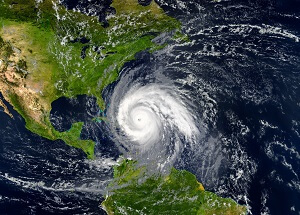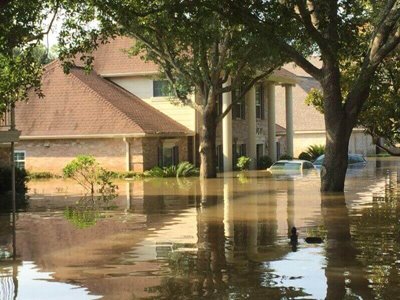Hurricanes Among the Most Destructive Forces in Nature

For those in the path of a hurricane:
-
Board up windows and secure loose items like patio furniture
-
Know where to go in the event of an evacuation and how to get there; establish an assembly point for family members to meet if separated, and choose one person everyone can contact with their whereabouts and status
-
Take shelter in a sturdy building; avoid isolated sheds or other small structures, open areas, hilltops, the beach or boats
-
If you are driving in heavy rain, try to safely exit the road, stay in the vehicle and turn on the emergency flashers
-
Never drive into flooded areas; if flood waters rise around your car, abandon the car and move to higher ground
-
Contact your local emergency management agency for information
-
Avoid contact with electrical equipment, cords, metal and water
-
Listen for warning sirens, stay away from windows and exterior doors, and seek shelter in a bathroom or basement
-
Stay indoors until authorities tell you it’s safe to go outside
-
Hurricanes can cause massive flooding
-
Learn about safe cleanup from local authorities, or visit www.cdc.gov
-
Get daily hurricane updates from the Federal Emergency Management Agency
Response and Recovery
“With the citywide response to and recovery from Harvey still entirely under way, several near-miss events have occurred,” he said days after the storm. Worden offered the following safety tips for first responders and others working to get residents back in their homes safely:
-
Make sure electricity is turned off to avoid electrocution
-
While attempting to return to a flooded home to gather belongings, beware of stepping into a swimming pool or manhole not visible beneath the flood water; this could lead to drowning
-
Do not wade through flood water without protective equipment; flood water could contain enormous amounts of bacteria, oil, hazardous materials, solid waste and other contaminants that if ingested, absorbed or inhaled can cause illness or death
-
In areas with mold, mildew or other respirable hazards, facial hair will break the seal on a respirator; it’s extremely important to maintain a seal to prevent inhalation of contaminants, so remove any facial hair
-
Heat and humidity can easily cause heat stress or worse, so take proper work/rest cycles and hydrate








